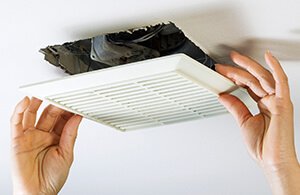5 Ways to Improve Indoor Air Quality at Home
Go Back To Previous PageYou cannot overestimate the importance of maintaining decent air quality in your home. The way you care about the world around you by making environmentally friendly decisions and purchases should also apply to the environment of your home. After all, you sleep there to keep your body functioning normally, not to mention those working from home.
making environmentally friendly decisions and purchases should also apply to the environment of your home. After all, you sleep there to keep your body functioning normally, not to mention those working from home.
The great news (or not) is that you can achieve a lot solely by sticking to a regular cleaning schedule – making sure you don’t collect dust and garbage in there will make your home feel and smell more comfortable.
However, this might not be enough—weird smells that don’t go away after cleaning can signal that you need a heater replacement.
Luckily, there are multiple ways to ensure you’re doing your best to improve indoor air quality. In addition to keeping your rugs clean, replacing AC filters regularly, checking air ducts, and controlling humidity levels would be best. You can also add more houseplants or use cooking vents. Continue reading to learn more about maintaining good air quality and conducting at-home air quality tests.
Schedule Regular Cleaning Sessions for Air Quality at Home
As we already stated, there is no way you can overestimate the importance of regular cleaning around the house. Keeping every nook and cranny clean is essential if you want the air you breathe to be fresh and healthy.
This means you should vacuum regularly and dust all surfaces at least once a week. If you have carpets, investing in a good vacuum cleaner with a powerful engine would be best since this will help you clean your rugs more thoroughly.
Another thing you should remember is that if your air conditioner is used daily, its filter needs to be replaced every three months. If you don’t, it will become clogged, making your cooling system work less efficiently and use more energy.
Take Care of the Humidity Levels
If the air in your house is too humid, it can create a perfect environment for mold growth. Not only will you have to worry about the foul smell, but you might also expose your family to harmful toxins the mold releases.
might also expose your family to harmful toxins the mold releases.
Conversely, if the humidity level is too low, it can dry out your throat and nasal passages, making you more susceptible to colds and other respiratory problems.
That’s why investing in a good hygrometer is essential to help you monitor humidity levels in your home. If the air is too humid, open all windows and doors to improve ventilation.
Additionally, you can place a bowl of ice water before a fan to cool down the air or use a dehumidifier.
Add Houseplants
If you want to naturally purify the air in your home, adding some greenery is an excellent idea. Some plants are known for their ability to absorb carbon dioxide and other pollutants from the air.
The great news is that you can choose from many plants – for example, peace lilies, bamboo palms, spider plants, snake plants, Boston ferns, etc. Find the ones that suit your taste and match your interior design to serve as an aesthetic addition to your home.
In addition, do some research before picking houseplants because some require more care than others. Once you decide which ones to get, put them where they will receive enough sunlight during the day.
Use Cooking Vents to Improve Air Quality at Home.
If you enjoy cooking, you’re probably familiar with the unpleasant smell lingering in the kitchen after preparing a meal. This happens because certain food odors stick to surfaces and spread around your home through the HVAC system since it recirculates the air.
One way to solve this problem is to use a cooking vent to expel all the bad smells outside instead of letting them circulate through the kitchen.
However, this is not always possible – for instance, if you live in an apartment building with multiple floors, you might not be able to install one of these vents. In this case, you should open all the windows in your kitchen while cooking and then turn on the exhaust fan when you’re done cooking to eliminate any remaining odors.
Check Air Ducts Regularly
To avoid musty or dusty smells from your AC system or various parts of your home, regularly check all air ducts for mold or debris buildup. This will ensure that fresh air circulates freely around your house and that your cooling unit works as efficiently as possible.
Also, don’t forget to clean or replace filters at least once every three months.
Conclusion
As you can see, many ways exist to improve indoor air quality at home. All you need to do is vacuum regularly, dust surfaces, and maintain the humidity levels in your house. Adding houseplants or cooking vents can help you naturally eliminate unpleasant smells. Finally, regularly check air ducts for mold or debris buildup.
Sticking to a regular cleaning schedule and tackling a couple of additional tasks around the house will allow you to sleep in.


